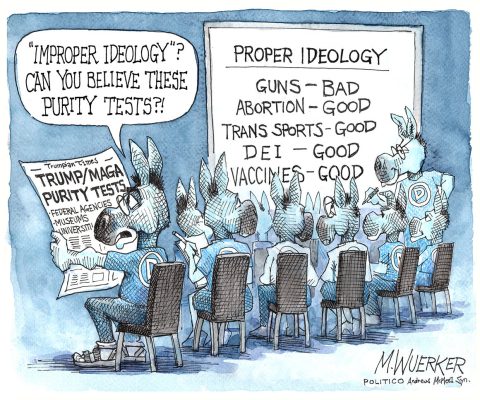by Paul Teetor
LeBron James finally got his own hand-picked Lakers coach. But the way he did it was ethically questionable at best, and disloyal and sneaky underhanded at worst.
It took the Lakers seven weeks to land on Jonathan Clay “JJ” Redick, but the smart money said it would be Redick on May 3, the day the Lakers fired Darvin Ham, their latest scapegoat.
Why so certain so early?
Because the smooth, brainy Redick started a podcast called “Mind the Game” with LeBron back in March, when the Lakers were stumbling into yet another spot in the play-in tournament, the NBA’s post-season gimmick to help the teams at the bottom of the standings pretend to be contenders by playing their way into the real playoffs.
The format of “Mind the Game” was stunning. James and Redick would discuss plays that NBA teams – often the Lakers – had run in different situations and then second-guess what was and wasn’t done right by the team and the players.
That’s right: James and Redick would critique the plays run by Darvin Ham, who at the time was still the Lakers coach – and Redick was a coach-in-waiting, a hot coaching prospect just waiting for a plum opening like the Lakers.
It was, frankly, unprecedented: a team’s superstar going public with criticism of the team and its coach without actually framing it as criticism. It was framed as a technical breakdown of the game, bringing the listener inside the game as seen by two brilliant basketball minds.
Hence the title: “The Mind Game.”
Both James and Redick are, in fact, brilliant basketball minds. James has proved it over his 20-year career in the NBA. Redick proved it over a 15-year NBA career during which he maximized his borderline talent as a 6-foot-4, relatively un-athletic shooting guard at a position typically manned by 6-foot-6 uber-athletic greyhounds like Kobe Bryant, Jaylen Brown and Anthony “Ant Man” Edwards.
Close listeners to “Mind the Game” soon detected a consistent theme when the Lakers were discussed: they were slow to make in-game adjustments, never established a regular rotation so players could know when and how much they would be playing game in and game out, and were not good at what is called ATO’s – short for after time-out plays.
And there were long stretches where Ham’s name was never mentioned. But there was no need for James and Redick to call him out by name: Ham was the head coach, he ran the show, and it was his decisions that Redick and James were dissecting.
The listeners were not stupid or clueless: they knew Ham was the coach and that he was responsible for everything that was being critiqued.
And surprise, surprise the reasons offered by GM Rob Pelinka and owner Jeanie Buss for Ham’s dismissal after just two seasons were eerily familiar to people who listened to “Mind the Game.” Ham was slow to make in-game adjustments, never established a set rotation so players could know when and how much they would be playing and was not good at drawing up ATO’s.
Of course, it was all done through leaks to their mainstream media minions, the beat reporters that are around the team day after day and week after week. Pelinka and Buss never said anything publicly about Ham’s weaknesses as a coach after he was fired. They didn’t need to. Their media minions did it for them.
But wait, you say, didn’t the Lakers offer the job to UConn coach Dan Hurley before settling on Redick?
That’s true, of course, but in hindsight the negotiations weren’t being conducted in good faith — on either side.
On Hurley’s side, he used the Lakers to drive up his price for an extension of his college contract. The Lakers? They made a low-ball offer – 6 years for $70 million — that only would have made Hurley the sixth highest paid coach in the NBA.
Not exactly the “Massive” offer the Lakers originally said they were preparing, again through media leaks to their favorite reporters.
Three days after Hurly very publicly rejected the Lakers offer, he did a multi-stop media tour discussing his decision. In it, he admitted there was a Godfather type of number that he would have had to accept – the guess here is $100 million – but he said that the Lakers hadn’t come close to reaching it.
So after the week-long Kabuki dance between Hurley and the Lakers was over, they quickly returned to LeBron’s original choice all along: His podcast partner, Redick, who has absolutely zero coaching experience at the high school, college or NBA levels.
Unless you count his kids basketball team of 8-and 9-year-olds — and even then, the most notable moment came when he was ejected from a game when he disputed a traveling call a little too loudly.
Now that LeBron has the coach he wanted, the Lakers next step will almost certainly be to draft his son, Bronny James, with the 55th pick in Wednesday’s NBA draft.
So Redick will be walking into an impossible situation: a declining team with the son of the star player on the roster and a fan base that still has championship expectations that are totally unrealistic.
Now that does not necessarily mean Redick will be a bad coach. Indeed, he has the potential to be another Steve Kerr, the Warriors wildly successful head coach who also went directly from the broadcast booth to the coach’s job.
The real test: the first time he has to deliver a hard truth to an unhappy player. Will that player believe that the hard truth is coming from Redick? Or will he believe it is coming from LeBron and Redick is only his puppet?
There’s one thing, however, that Redick won’t have to worry about: he said he is canceling “The Mind Game” podcast now that he is the coach.
Happy Trails to Willie Mays
One of the last living links to the epic New York Giants vs. Brooklyn Dodgers rivalry was lost last Wednesday when Willie Mays passed away at the age of 93. It’s forgotten now, but Mays was in the on-deck circle waiting to hit when Bobby Thompson clubbed his shot heard round the world, a three-run home run that won the third and final playoff game between the bitter rivals and snatched the 1951 National League pennant from the Dodgers, who had it seemingly sewed up with a 4-1 lead in the bottom of the ninth inning.
Mays was a rookie in 1951 when he won the National League Rookie of the Year award. He missed the next two seasons because of military service, and then went on to be the star of one of baseball’s most iconic moments in the 1954 World Series against the Cleveland Indians. Vic Wertz smashed a fastball to deepest center field. At the crack of the bat Mays raced to the wall 450 feet away with his back to home plate, reached up and snagged the ball. That was known as “the catch.” Then came “the throw.” Mays wheeled around, threw a rocket to the infield to prevent the runner from scoring, and fell to the ground from the force of his throw.
Mays went on to smash 660 home runs, bat .302 lifetime and win 12 Gold Glove awards.
All that ranks him in the top 3 all time of ball players along with Babe Ruth and Honus Wagner.
But he had something else besides statistics that set him above all others: the joy and verve and sheer excitement that he radiated while playing the game.
That’s what made “The Say Hey Kid” the greatest ball player of all time.
Contact: teetor.paul@gmail.com. ER









